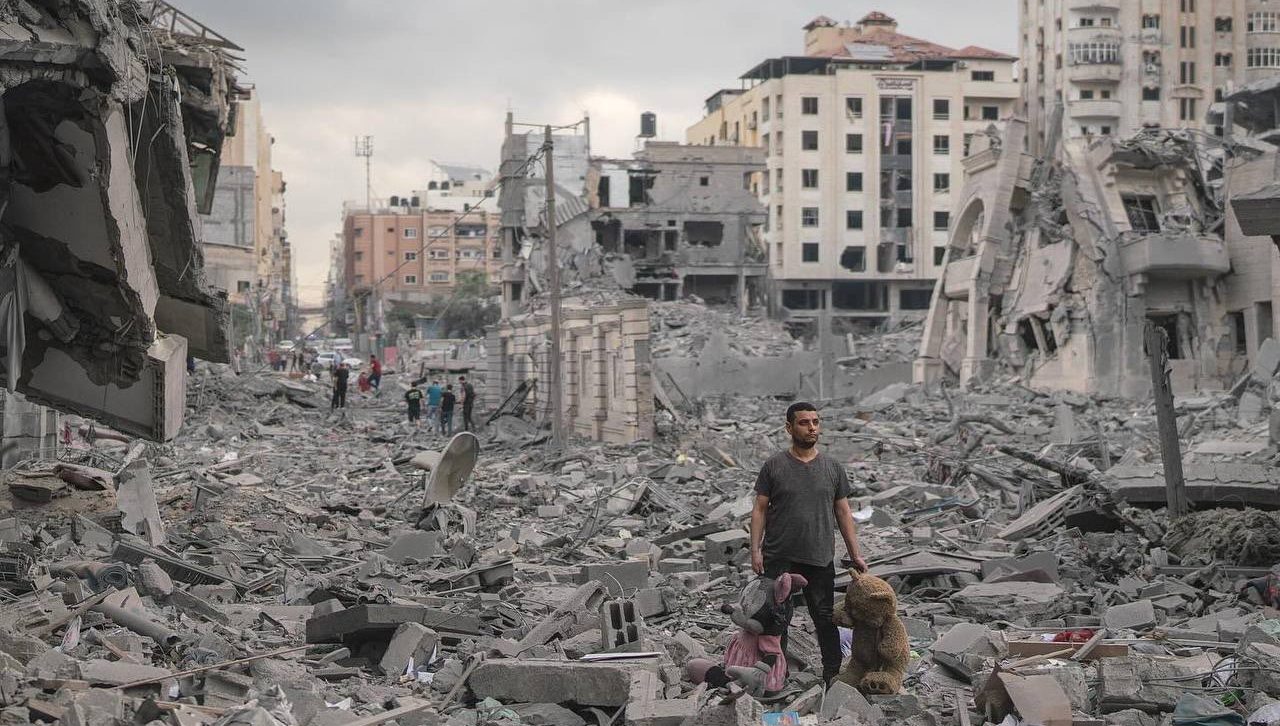Gaza’s government media office warned of “an imminent humanitarian catastrophe” with the city’s sole power plant shutting down completely within the coming hours.
The United Nation has called for a safe humanitarian corridor for urgent aid delivery to Gaza after Israel ordered a complete siege on the Palestinian city on Monday, as it continued to pummel the Strip for a fifth consecutive day.
In a statement, UN Secretary-General Antonio Guterres said he was “deeply distressed” by the Israeli announcement over imposing a complete siege on the already blockaded Gaza Strip.
“The humanitarian situation in Gaza was extremely dire before these hostilities; now it will only deteriorate exponentially. Medical equipment, food, fuel and other humanitarian supplies are desperately needed, along with access for humanitarian personnel,” the UN chief said.
Guterres further urged “all sides and the relevant parties” to provide a safe passage for the UN to deliver the urgent humanitarian aid to Palestinians in Gaza, while appealing to the international community to “mobilise immediate humanitarian support for this effort.”
Israel has been bombing the besieged Gaza Strip for five days, mainly targeting residential buildings, schools, and medical facilities across the besieged enclave.
As of Wednesday morning, Israel has killed at least 950 Palestinians, including at least 260 children, though the figure is expected to rise amid the ongoing IOF attacks.
Gaza has faced an illegal Israeli air, land and sea blockade since 2007 and has been widely described as the world’s “largest open-air prison”. Children make up around 47% of Gaza’s population of two million.
The besieged enclave heavily relies on vital crossings that allow the passage of basic necessities. On Tuesday, Israel attacked and shut down the shared Egypt and Gaza crossing of Rafah, which has long served as a crucial lifeline for millions of Palestinians in the city.
The latest Israeli decision to impose a complete siege has sparked further concerns over already dire conditions on the ground in Gaza.
UN High Commissioner for Human Rights Volker Turk has condemned the Israeli decision, which he said “risks seriously compounding the already dire human rights and humanitarian situation in Gaza.”
“The imposition of sieges that endanger the lives of civilians by depriving them of goods essential for their survival is prohibited under international humanitarian law,” Turk said in a statement on Tuesday.
On the same day, Qatar’s Prime Minister and Minister of Foreign Affairs Sheikh Mohammed bin Abdulrahman Al-Thani received a phone call from the UN chief.
A statement by Qatar’s foreign ministry said the conversation dealt with “the latest developments in the situation in the Palestinian territories and Israel, and ways to de-escalate.”
“The Prime Minister and Minister of Foreign Affairs pointed out the necessity of activating international action mechanisms through the United Nations and its various organisations, within the framework of reducing escalation and ensuring the delivery of urgent humanitarian aid to those affected,” the statement added.
Fears over a complete blackout in Gaza
The 16-year siege on Gaza has already deprived Palestinians from basic resources, including water and electricity.
Under Israel’s tight grip on basic resources, Gaza has faced what the UN previously described as “a chronic electricity deficit” that has been made worse by several rounds of Israeli aggression on the besieged city.
Gaza’s government media office issued a statement on Wednesday warning of “an imminent humanitarian catastrophe” with the city’s sole power plant expected to shut down completely in the coming hours due to a lack of fuel.
“This threatens to plunge the Strip into complete darkness and make it impossible to continue providing all basic life services, all of which depend on electricity, and it will not be possible to operate them partially with generators in light of the prevention of fuel supplies from Rafah Gate,” the statement said.
The government statement added that the current “catastrophic situation creates a humanitarian crisis for all residents of the Gaza Strip, which is further exacerbated by the occupation’s continued aggression and destruction of entire residential neighbourhoods.”
It also slammed the Israeli attacks as “the dirtiest crime of collective punishment against defenseless civilians in modern history.”
“[The international community] needs to move quickly to stop this crime against humanity and this multi-form mass murder, and the need to provide the Gaza Strip with all means of life, and not abandon it. Its residents are hostage to the killing tools used by the occupation,” the statement said.
The extreme power shortage poses further challenges on medics in Gaza that have been working relentlessly over the last five days in order to treat thousands of injuries with an already limited supply of medicine and tools.
The Palestinian Red Crescent in Gaza told Al Araby TV on Wednesday that “there is a danger threatening medical teams and they must be protected.”
At least six healthcare workers in Gaza have been killed this week and eight healthcare facilities have been damaged by the Israeli strikes.
Palestine’s envoy to the UN Riyad Mansour described Israel’s ongoing bombardment and siege of Gaza as “nothing less than genocidal.”
“Such blatant dehumanisation and attempts to bomb a people into submission, to use starvation as a method of warfare, and to eradicate their national existence are nothing less than genocidal,” Mansour said on Tuesday.







